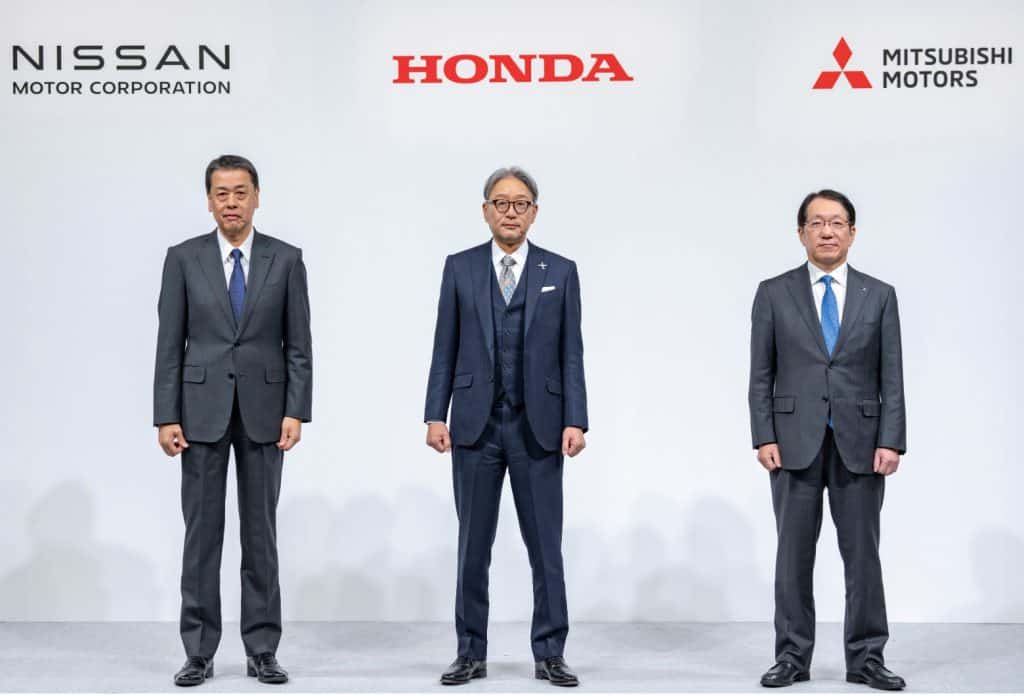
The proposed partnership seeks to pool the resources of two of Japan’s automotive giants to accelerate advancements in electrification and vehicle intelligence. By integrating their management expertise, technologies, and human capital, the companies aim to bolster competitiveness and enhance their ability to deliver innovative vehicles and services worldwide.
A Shared Vision for the Future
The talks stem from a shared ambition to address industry shifts toward carbon neutrality and smarter, safer mobility. Nissan and Honda have been collaborating on joint research into next-generation software-defined vehicles (SDVs), a cornerstone of the future of automotive intelligence. This latest agreement deepens their commitment to finding synergies in platform development, manufacturing efficiency, and supply chain optimization.
Both companies acknowledge the urgency of adapting to evolving market conditions. “This moment marks a pivotal step in shaping the future of mobility,” Nissan CEO Makoto Uchida said. “Together, we can create unparalleled value for customers and reimagine how people experience driving.”
Honda CEO Toshihiro Mibe echoed this sentiment, emphasizing the necessity of leveraging each company’s strengths. “By uniting our resources and expertise, we aim to overcome the challenges of a rapidly changing environment and deliver new mobility value,” he said.
Potential Synergies and Ambitious Goals
If the integration is realized, the partnership could unlock a host of benefits:
- Standardized Platforms: By aligning vehicle platforms across internal combustion, hybrid, and electric models, the companies aim to boost development efficiency and customer satisfaction.
- Advanced R&D Collaboration: Unified research efforts are expected to accelerate breakthroughs in SDVs, driving cost savings and innovation.
- Streamlined Operations: Optimizing production facilities and supply chains would improve efficiency and reduce fixed costs.
- Talent and Technology Integration: Combining workforce expertise could foster a new generation of mobility solutions.
The potential joint venture could generate annual revenues exceeding 30 trillion yen (about $200 billion) and operating profits of more than 3 trillion yen.
Roadmap to Integration
The companies plan to establish an integration preparatory committee to guide the process. Pending regulatory and shareholder approvals, the joint holding company could debut on the Tokyo Stock Exchange by August 2026. At that point, Nissan and Honda would become wholly owned subsidiaries under the new entity.
While the agreement signals strong intent, both companies stress that the integration is not yet finalized. Comprehensive due diligence and market analysis will inform the next steps, with a definitive decision expected by January 2025.
Challenges and Opportunities
The collaboration comes as automakers worldwide face mounting pressure to transition to sustainable practices and embrace emerging technologies. With competition intensifying, particularly in the realms of electric and autonomous vehicles, the proposed alliance positions Nissan and Honda to better navigate these demands while continuing to innovate.
Industry observers will be watching closely as this partnership develops, with the potential to redefine mobility and set a new benchmark for collaboration in the automotive sector.
Nissan, Honda, and Mitsubishi Motors Explore Strategic Alliance Amid Industry Shifts
Nissan Motor Co., Honda Motor Co., and Mitsubishi Motors Corp. have signed a memorandum of understanding (MOU) to explore Mitsubishi’s potential participation in a business integration plan spearheaded by Nissan and Honda. This collaboration, aimed at leveraging synergies across the three companies, could pave the way for a new era of intelligence and electrification in the industry.
The talks build on an earlier agreement between Nissan and Honda, signed on August 1, to establish a joint holding company. This bold step is designed to address sweeping changes in the automotive sector, including the push for electrification, autonomous technologies, and sustainability. Mitsubishi’s involvement is expected to further enhance these efforts by contributing its expertise and resources to the partnership.
Mitsubishi Motors has until January 2025 to decide whether it will formally join the integration. In the meantime, all three companies are engaging in detailed discussions to evaluate potential synergies and the best form of collaboration.
A United Vision for the Future
“This partnership represents an extraordinary opportunity to deliver greater value to our customers,” Nissan CEO Makoto Uchida said during a press conference. “With Mitsubishi Motors joining the discussion, we are optimistic about unlocking even more synergies across our shared operations and capabilities.”
Honda CEO Toshihiro Mibe emphasized the transformative nature of this collaboration, noting, “The automotive industry is undergoing changes unseen in a century. By bringing Mitsubishi Motors into our integration talks, we aim to drive societal change and establish ourselves as leaders in next-generation mobility solutions.”
Mitsubishi Motors CEO Takao Kato echoed these sentiments, highlighting the potential for innovation: “Nissan and Honda’s strategic partnership offers a rare chance to maximize synergies. We are committed to exploring the best ways to align our strengths with theirs for mutual success.”
Regulatory and Shareholder Considerations
As the discussions progress, Honda and Nissan are also preparing for potential regulatory filings in the U.S., including a Form F-4 registration statement with the Securities and Exchange Commission (SEC). This filing, if made, will outline details of the share transfer between the two companies, including the implications for shareholders. Key stakeholders are encouraged to review these filings once available, as they will provide critical information about the proposed integration.
Looking Ahead
The proposed alliance comes at a pivotal moment for the auto industry, which is navigating rapid technological advancements and heightened environmental regulations. If successful, the collaboration could position Nissan, Honda, and Mitsubishi as leaders in sustainable mobility while fortifying their competitiveness against global rivals.
With the deadline for Mitsubishi’s decision looming in early 2025, industry watchers will be keenly following developments. For now, the MOU represents not just a strategic alignment but a bold statement of intent to redefine the future of transportation.